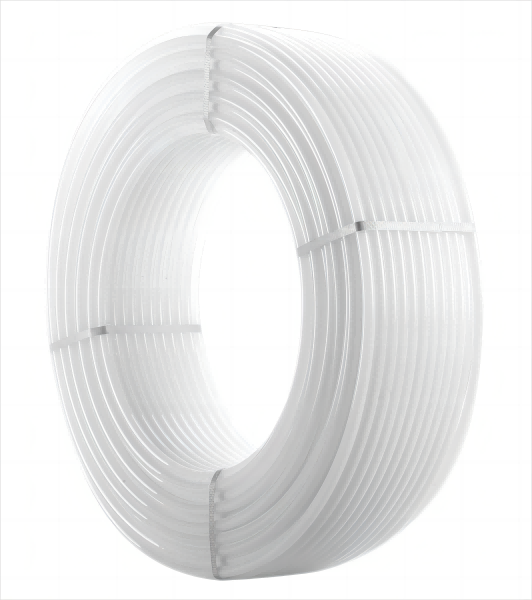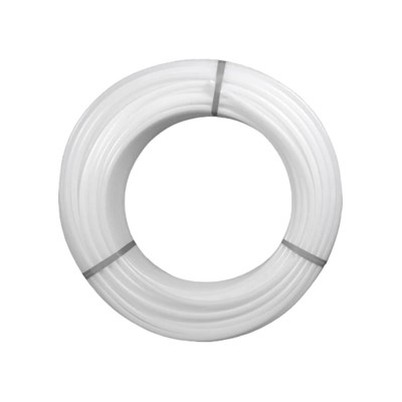Is a 3 inch pex pipe a good electrical insulator?
Leave a message
Hey there! As a supplier of 3-inch PEX pipes, I often get asked if these pipes are good electrical insulators. It's a valid question, especially when you're looking at different applications and safety concerns. So, let's dive right into it and find out if a 3-inch PEX pipe can do the job as an electrical insulator.
First off, let's understand what PEX pipe is. PEX stands for cross-linked polyethylene. It's a type of plastic pipe that has been around for a while and is widely used in various industries, especially in PEX Pipe for Water Supply. The cross-linking process gives PEX pipes some unique properties. They're flexible, durable, and resistant to many chemicals. But what about their electrical insulating capabilities?
Plastic materials, in general, are known to be good electrical insulators. That's because they don't have free electrons that can move easily to conduct electricity. PEX is no exception. The molecular structure of cross-linked polyethylene makes it difficult for electric current to pass through. So, from a basic scientific perspective, a 3-inch PEX pipe should be a decent electrical insulator.
In practical applications, this property can be really useful. For example, if you're working on a project where you need to protect electrical wires from environmental factors while also ensuring they're not in direct contact with conductive materials, a 3-inch PEX pipe can be a great choice. It can act as a physical barrier between the wires and the surroundings, and at the same time, prevent any electrical leakage.
Another aspect to consider is the thickness of the pipe. A 3-inch PEX pipe has a relatively large wall thickness compared to smaller pipes. This additional thickness can enhance its insulating properties. The thicker the material, the more difficult it is for electricity to penetrate. So, in terms of electrical insulation, the size of the 3-inch PEX pipe can work in its favor.


However, it's important to note that no material is a perfect insulator. There are always some factors that can affect the insulating performance of a 3-inch PEX pipe. For instance, if the pipe is exposed to extreme temperatures, its molecular structure can change. High temperatures can cause the plastic to soften, which might reduce its insulating capabilities. On the other hand, very low temperatures can make the pipe brittle, and cracks can form. These cracks can then provide a path for electricity to pass through, compromising the insulation.
Moisture is another factor. If the PEX pipe gets wet or is installed in a humid environment, the presence of water can increase its conductivity. Water is a conductor of electricity, and if it seeps into the pipe or accumulates on its surface, it can create a conductive path. So, when using a 3-inch PEX pipe for electrical insulation, it's crucial to ensure that it's installed in a dry environment or properly protected from moisture.
Let's also talk about the quality of the PEX pipe. Not all 3-inch PEX pipes are created equal. There are different grades and standards available in the market. For example, PE-Xa Pipe NSF and PE-Xa Pipe ISO15875 are two standards that ensure the pipe meets certain quality and performance criteria. Pipes that comply with these standards are more likely to have consistent and reliable insulating properties.
When choosing a 3-inch PEX pipe for electrical insulation, it's a good idea to look for pipes that are certified to these standards. This way, you can have more confidence in their performance. Additionally, make sure to source your pipes from a reputable supplier. As a 3-inch PEX pipe supplier myself, I can attest to the importance of quality control. We test our pipes regularly to ensure they meet the required standards and perform well as electrical insulators.
In some cases, you might need to take additional precautions when using a 3-inch PEX pipe for electrical insulation. For example, you can use insulating tape or other insulating materials in combination with the pipe. This can provide an extra layer of protection and enhance the overall insulating performance.
If you're still not sure whether a 3-inch PEX pipe is the right choice for your electrical insulation needs, it's always a good idea to consult with a professional electrician. They have the expertise and experience to assess your specific situation and recommend the best solution.
To sum it up, a 3-inch PEX pipe can be a good electrical insulator under the right conditions. Its molecular structure, thickness, and overall properties make it suitable for many applications where electrical insulation is required. However, you need to be aware of the factors that can affect its performance and take appropriate measures to ensure its effectiveness.
If you're interested in purchasing 3-inch PEX pipes for your electrical insulation projects or any other applications, feel free to reach out to us. We're here to provide you with high-quality products and expert advice. Let's have a chat and see how we can meet your needs.
References
- General knowledge about PEX pipes and electrical insulation principles.
- Information from industry standards and research on cross-linked polyethylene materials.




